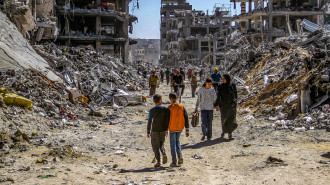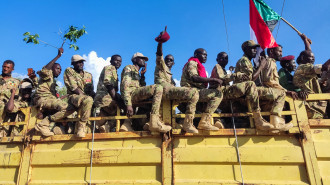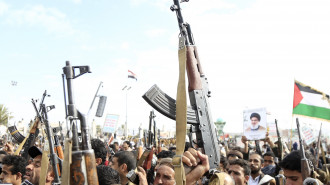Modern slavery and retail: UK cotton imports from China under scrutiny over forced Uighur labour
The submission made by Global Legal Action Network (GLAN), together with activist group the World Uyghur Congress (WUC), comes amid growing concerns that Uighur Muslims are being transferred to factories across China to replace workers during the coronavirus lockdown.
Large brands such as H&M, Uniqlo, Muji and Ikea were all named in the documents as sourcing cotton from Xinjiang.
During the Covid-19 pandemic pictures and videos purporting to show uniformed Uighur workers being transferred to factories across the country have been circulated.
Reports of members of the Uighur Muslim minority being detained in "re-education" camps first emerged in 2016.
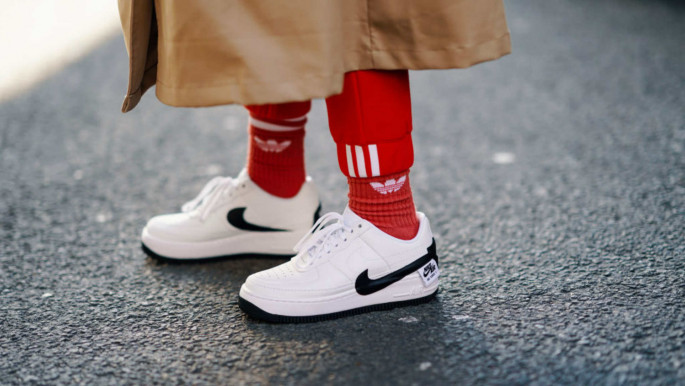 |
|
| Read more: How much of your stuff is linked to forced Uighur labour? |
The United Nations human rights panel has since said there are credible reports of more than one million Uighurs being held in internment camps in Xinjiang. Uighur activists say that many have disappeared or been killed in the camps, and that others have been forced to work in factories.
Many Uighurs who have left or been exiled from Xinjiang say they have lost all contact with their families in China.
The Chinese authorities say the camps are "vocational training centres" and that they are necessary to tackle religious extremism among the Uighur Muslim minority.
"The Chinese government is committing cultural genocide. Enforcing labour in Chinese factories is another way to make Uighurs forget their home and their religion," Rahima Mahmut, UK project director for WUC, told The New Arab.
"We are calling on the UK government to take a practical approach to making China accountable for its crimes against the Uighur people," she added.
Xinjiang's Uighur detainees "serve as a key labour force in every link of China's cotton value chain, from cotton field reclamation to planting, harvesting, processing, and garment production," concludes a report from the Citizen Power Institute (CPI) cited in the document.
 |
During the Covid-19 pandemic pictures and videos purporting to show uniformed Uighur workers being transferred to factories across the country have been circulated |  |
The submission argues that forced labour is on such a scale that current imports "violate UK laws, including 19th century legislation prohibiting the importation of prison-made goods, and should be halted by the UK's customs authorities."
Dr Gearóid Ó Cuinn, director of GLAN, told The New Arab that while the letter itself does not initiate litigation, any decision from HMRC would be open to judicial review.
Read more: China's detained Uighur Muslims toil in factories for tech giants Apple, Lenovo
"There is a consensus that what is happening to the Uighurs is a systematic attempt to break up the social fabric of a people. Without governments and companies taking appropriate action they will facilitate this through trade. Our economies should not be participating in this travesty," said Ó Cuinn. "This could well amount to a crime against humanity," he added.
A spokesperson for HMRC told The New Arab: "We will consider the evidence submitted."
China's cotton industry provides nearly a quarter of the global supply and 84 percent of the national output comes from Xinjiang, according to the CPI report. But rights groups are concerned that it is impossible to verify claims from Chinese authorities that this cotton is being ethically supplied.
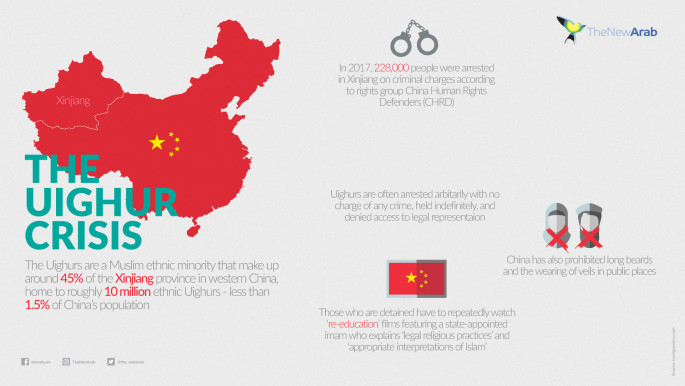 |
|
| Click to enlarge |
"The scope and the scale of human rights violations across the region make it an environment in which the robust human rights due diligence expected to be made by companies is effectively impossible," Sophie Richardson, the China director at Human Rights Watch, told The New Arab.
This has not prevented some of the UK's most popular high-street chains importing cotton from Xinjiang. As part of advertising for a range of shirts, Uniqlo once boasted that cotton from the region was "famous for its superb quality".
The authors of the submission also claim to have purchased a Muji shirt labelled as being made of Xinjiang cotton in a London store in February this year. Uniqlo did not respond to a request for comment before publication.
A spokesperson from Muji told The New Arab: "MUJI sources quality cotton from many places around the world including India, Turkey, the United States, and China."
"All these cottons and yarns have obtained the international organic certification confirmed by a third-party organization, which requires the compliance with working conditions, including prohibition of forced labor, set by the International Labor Organization (ILO)."
 |
There is a consensus that what is happening to the Uighurs is a systematic attempt to break up the social fabric of a people. Without governments and companies taking appropriate action they will facilitate this through trade |  |
The submission also states that Ikea and H&M had both previously admitted sourcing cotton from Xinjiang in accordance with the Better Cotton Initiative, a global non-profit organisation that carries out due diligence checks on suppliers.
However, BCI announced in March 2020 that there would be "no licensed Better Cotton" from Xinjiang for the upcoming season over concerns that it was not possible to get credible assurances from suppliers.
Read more: The 'Karakax Leaks' are proof of China's cultural genocide against Xinjiang's Muslim Uighur population
"IKEA supports the BCI decision and commitment to conduct an external review of operations based on allegations of forced labour," a spokesperson for IKEA told The New Arab.
"At IKEA we are committed to using 100% Cotton from More Sustainable Sources (CMSS) in all our products and productions since September 2015. BCI is one of our approved schemes for CMSS and therefore historically we have been using BCI licensed cotton on a global scale including Xinjiang, China. However, since the harvest from the cotton season 2020-21 will not be approved by BCI, IKEA has taken the decision to stop sourcing cotton from Xinjiang, China."
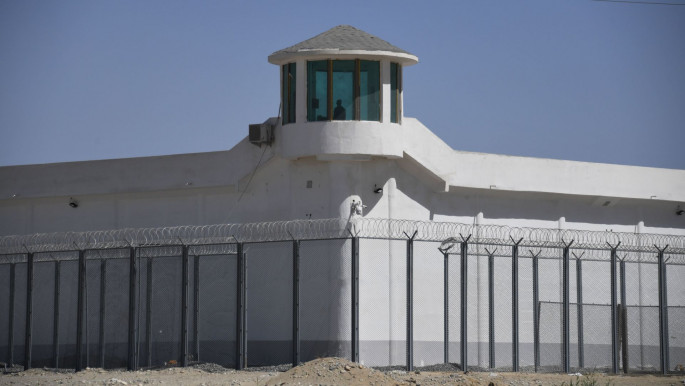 |
|
| Read more: UK urged to suspend cotton imports from northwest China over 'Uighur Muslim slave labour' fears |
A spokesperson from H&M also said in a statement that it does not, and never has, "worked with any garment manufacturing factories located in Xinjiang. We do not source products from this region - neither through first nor second tier suppliers."
"All our cotton from China is sourced through the Better Cotton Initiative (BCI). Xinjiang is China's largest cotton producing region, and up until now, our suppliers have sourced cotton from farms connected to BCI in the region. However, BCI has now decided to temporarily suspend licensing of BCI cotton in Xinjiang. This means that for our production, the suppliers we work with will not buy BCI cotton from Xinjiang for the coming season."
It added that the company is in "close contact with human rights experts, other brands, and stakeholders, to evaluate how we can further strengthen our due diligence and responsibly address the situation and in accordance with the UN Guiding Principles".
Referring to the companies cited in the submission, Rahima Mahmut of the World Uyghur Congress, told The New Arab: "From an ethical and moral point of view, I hope that after they've seen this evidence, they will stop using cotton produced from Uighur slave labour and move their supply chain."
"We've been thinking about our Uighur friends this week in particular as Ramadan gets started," said Sophie Richardson.
"The idea that they do not even know where their families are, let alone celebrating the holidays with them is just excruciating."
Jan-Peter Westad is a freelance journalist and researcher based in London
Follow him on Twitter: @JanPeterWestad





 Follow the Middle East's top stories in English at The New Arab on Google News
Follow the Middle East's top stories in English at The New Arab on Google News
